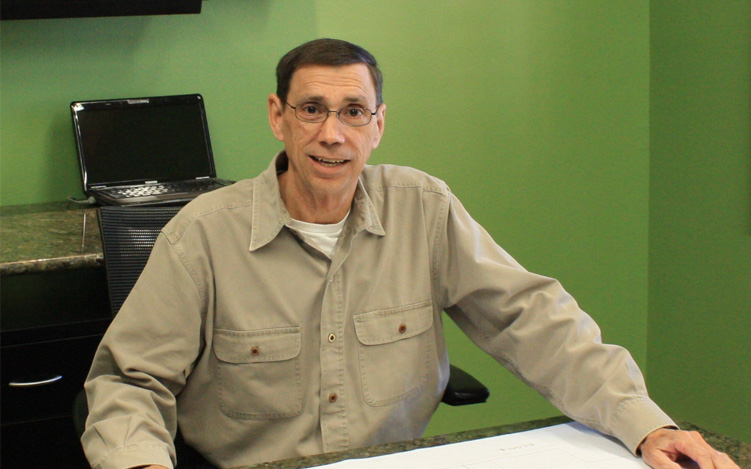Pancreatic cancer survivor stays positive
John Rodda used to put in some 12-hour workdays, but he’s learned to slow down and savor every day. A survivor of pancreatic cancer, which usually claims the lives of its victims, Rodda is one of the fortunate few.
Pancreatic cancer is among the deadliest of cancers, in part because the location of the pancreas makes the disease harder to diagnose. Pancreatic cancer deaths rank fourth among all cancer deaths in the United States, according to the Pancreatic Cancer Action Network (PCAN), a Manhattan Beach, California, organization. Only six percent live five years.
In 2006, after his eyes turned a bright yellow, Rodda discovered he had a tumor blocking the bile duct at the head of his pancreas. Because of its position and the jaundice, the cancer was discovered soon enough to remove surgically. “They had me diagnosed so fast I didn’t really have time to think about what lay in front of me,” Rodda recalls.
In retrospect, that was a good thing. The best piece of advice he received was from his friend Dr. Jack Thigpen, a general surgeon with Watson Clinic and a Polk County Medical Association member, who told him not to read the dismal literature about pancreatic cancer. “‘Don’t look at the surveys. Don’t look at the percentages. It has nothing to do with you,’” Dr. Thigpen told him.
Today Rodda is cancer free, after having undergone the extensive Whipple procedure, chemotherapy and radiation. He still is in and out of the hospital more than the norm— because of that surgery. “They cut my stomach in half,” he explains.
Instead of steak, he eats chicken. Instead of salad, he eats green beans. But the most important thing is the cancer is gone. “I refer to it as the shrapnel from a bomb,” he says.
Old scar tissue from the surgery has caused clogging where the bile tube attaches to the liver, in a place that never was cancerous. It is treated using a balloon technique similar to that used for heart patients, which is called angioplasty.
Rodda, president of Rodda Construction of Lakeland, a commercial contractor, now works part-time directly with clients, addressing planning and permitting issues. He calls it the “fun stuff.” His son Jason has taken over the day-to-day business operations while his brother Jodie handles field issues. That means despite any of his hospitalizations, “We just never miss a beat,” he declares.
Rodda, who has received lots of prayer since his diagnosis, says he now seeks more jobs involving church construction. “That’s one of the reasons God left me [on Earth],” he asserts. “We were supposed to help prepare a place for people to study and learn to walk in faith.”
Being a survivor in the Pancreatic Cancer Alliance of Polk County (PCAP), a non-profit advocacy group that raises funds for research, has been a sobering experience at times for Rodda, who makes it a goal to be positive. “It’s just really difficult to sit there and see how many people don’t make it and how their families suffer,” he acknowledges. “You want everybody to be fine and win and get through this.”
He is a go-to person when someone learns they have the disease, and readily dispenses advice. “Live each day, one at a time. Don’t think about tomorrow. You can’t think about yesterday,” he says. “Ask God for forgiveness and guidance.”
He also recommends having an advocate at medical visits, keeping a journal and paying attention to signals your body gives. “Listen to your body. That’s going to be your first tip something’s wrong,” he says.
Although smoking has been connected to the disease, doctors couldn’t tell him what caused it, says Rodda, who quit smoking about 30 years ago. “My advice is you can’t do anything about it. Don’t dwell on it. Live your life as much as you can,” Rodda says. “Spend your time with your loved ones. Have a positive attitude. Do everything they [your medical providers] tell you.”
Having a positive attitude meant not taking “no” for an answer when he wanted to be included in an experimental treatment program for the disease. Even though the clinical trial was filled up, he did the program independently through his doctor.
His granddaughter Grace, then five months old, was a positive influence. He focused on and clung to the photo of him and her together. “I literally took that picture everywhere I went,” he recalls. Today he has eight grandchildren, to which he observes, “Somebody out there’s watching out for me.”
CREDITS
story by CHERYL ROGERS
